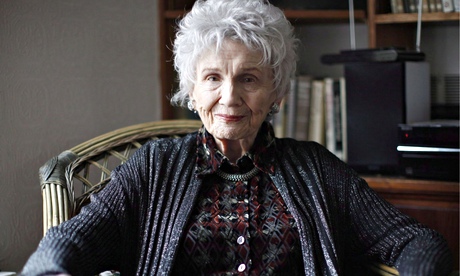
While occupied with the repetitious mundanity of keeping house and tending to small children, one of Alice Munro's young mothers will recall the adulterous affair she is meanwhile conducting and note how this tacit acknowledgment of her secret life "disturbed her like a radiant explosion".
Oddly, coming across those words brought to mind my reaction on first reading Munro. Having picked up a battered proof of her 2004 collection Runaway in a secondhand bookshop some years back, I found myself struck on a visceral level by the stories within. Their expansiveness and depth of character was astonishing, belied by their diminutive size, while the precision and bite of her writing stunned and left me awestruck.
Since that time, Munro has added a Nobel prize and the International Man Booker to her list of accolades. Naturally this selection, with its crop of 15 stories spanning five of her more recent collections, must be aimed primarily at the uninitiated and the curious. And oh my, what an introduction.
Munro has no need for flashy locations or dramatic plots. These stories are largely located within the small towns of the Canadian landscape where she has lived her life, and her characters are plucked from that world, yet the beauty and skill with which she dissects their actions and motivations is heart-stopping.
The mother mentioned earlier wakes near the end of The Children Stay in a seedy motel, having left her two daughters to run off with her lover. Comprehending what she has lost, she dulls her pain by thinking, "Say to yourself, you lose them anyway. They grow up". A philandering husband in The Bear Came Over the Mountain checks his Alzheimer's-afflicted wife into a nursing home only to watch impotently from the sidelines as a relationship blossoms between her and another patient.
At the heart of this selection are three stories that share a central character, Juliet, at first a studious and independent young woman, later a new mother visiting her parents, and finally a middle-aged widow who has lost all contact with her only daughter: "She keeps on hoping for a word from Penelope, but not in any strenuous way. She hopes as people who know better hope for undeserved blessings, spontaneous remissions, things of that sort."
Employing a temporal complexity in their structure that demonstrates her mastery of her craft, Munro's stories frequently give us the span of a life, so demonstrating how the small intimacies of everyday existence develop an inherent drama when weathered by time and circumstance.

